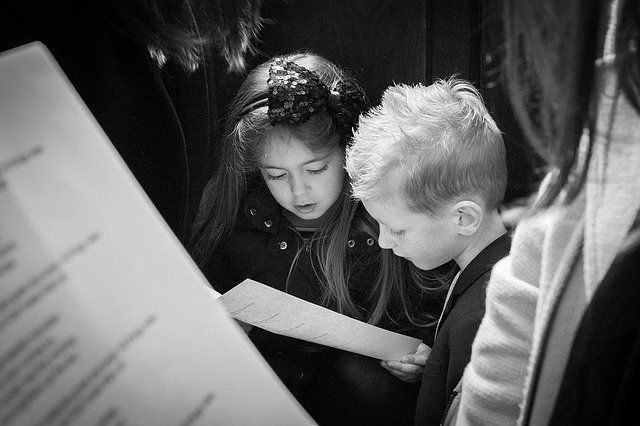The issue of ‘child protection’ may seem too remote for Evangelical churches to worry about. After all, an ill-treated child comes to our attention so seldom that we would be overreacting to give the subject any priority. But is that really the case?
What would you do?
What would you do, for example, if you suspected a parent of ill-treating their child? Would you report the matter to the authorities? You might not want to affect your relationship with someone you are trying to win for Christ.
What would you do if you suspected one of the church workers of abusing a child? Would you dismiss the idea that anyone who was born again, who you may have known for years, could do such a thing? You might feel that the reputation of the church was at stake and, in any case, it would be difficult to prove.
What would you do if a child was abused while in the care of your church, and the church was sued by the parent because it did not have a policy that might have prevented the abuse happening?
What would you do if a sex offender said he wanted to join your church and work with children because he said he was cured and was now a born-again Christian? You might consider lone parents, whose young children he might want to befriend. Or you might think that the past is past, and he must be forgiven and supported. After all, he is now a ‘new creature’ in Christ.

Would that such dilemmas would never arise; but they do. What could you do to prevent such things happening in your church? Would you bury your head in the sand, or prepare for such an eventuality? When such things happen they are traumatic for the child and devastating for the family and the church.
In view of all this, I wonder if your church has thought about adopting a policy and procedure for child protection?
Child protection in churches
We would prefer it, of course, if church child protection procedures were not necessary. But if our churches are reaching out with the gospel into the local community, it will not be long before needy children and families will come to our attention. Then concerns may well be raised about the care of children.
Parents will be entrusting their children to us for nurture and moral guidance. They will assume that children are safe in our care and that the church will demonstrate loving and understanding attitudes.
However, the local congregation is a microcosm of human society. It consists of born-again believers, nominal Christians, enquirers, and people seeking comfort for social and emotional reasons. All are human beings. All have human natures. Saved or not, the possibility of sin is still present. And if there are aggressive tendencies and unmet sexual needs, the devil will play on them, seeking to bring down the work of God.
Unsuitable people

We must not be satisfied until we have done all in our power to protect the young people in our children’s work from harm of all kinds. Churches need helpers willing to work with children and may, perhaps unwisely, appeal to the congregation for volunteers. Unsuitable people may respond to such a call. It is a sad fact that children can be hurt in a church environment just as in wider society.
As regards child sex abusers, we need to get our heads round certain uncomfortable facts. Those most likely to abuse children in this way will seek out opportunities to work with children, and churches are a soft target. We also need to recognise that sex abusers cannot be cured, only controlled.
Even those abusers who are subsequently converted are a risk and, though indwelt by the Holy Spirit, like all Christians, they are still sinners for whom backsliding remains a possibility. For such people, of course, backsliding is particularly serious.
The child protection policy
It can be seen, therefore, that churches have a great responsibility for the care of their children. Churches must behave responsibly in the selection of leaders, but should also know what to do if abuse or neglect comes to their attention.
This responsibility is not simply that of the youth organisation but of the church itself. Abusers are not easily recognised. There is no single criterion that will identify potential abusers. They are ordinary people, and can be very nice. The most likely way to succeed in protecting our young people is to have watertight processes to screen any who apply to do children’s work.

Here is where the elders or deacons must grasp the nettle. The responsibility for being aware of child protection issues is that of the church leadership and its members. No group should run as a separate entity from the church, and group leaders must be Christians endorsed by the church.
Establishing a policy
The passing of the ‘Children Act 1989’ was a significant national event in promoting good safe practice in child care. It was followed in 1993 by the Code of Practice, Safe from Harm.
This publication aims to help voluntary organisations working with children and young people, and forms the basis of the procedures produced by the Churches’ Child Protection Agency. The writer’s church, the Pontefract Congregational Church, has followed these recommendations closely in developing its own procedures.
When establishing a policy a church should first adopt a written statement of basic principles and appoint an identified ‘Child Protection Co-ordinator’ (or other named church officer) to whom anyone with concerns about a child can talk.

It is helpful also to provide written guidelines for people working with children or young people, so that abuse of a child in their care is prevented and high standards are promoted.
Vetting procedures
Vetting procedures should be put in place so that possible abusers can be identified. These will involve taking up references and even making police checks (although at present only the individual concerned can access his police record).
All potential youth workers should complete an application form recording their life and work experiences over the full period of their life. They should declare any police or social-services record relating to relevant offences. A notice should also be pinned on the notice boards stating ‘This church operates a child protection policy’ (but only if it does so!).
The policy should emphasise that it is the responsibility of the church elders or other named officers to appoint those who work with children and young people. This should not be left to group leaders acting alone.
Churches have the great responsibility under God of meeting the spiritual needs of children, and need to take that responsibility seriously. We must be seen to be putting it into practice, so that any potential abuser, seeking the opportunity to work with children, will be faced with significant hurdles.
A sense of proportion
The issue of child protection can create mental stumbling blocks for us. Has society gone too far in this modern age? We are no longer allowed to smack our children without fear of being labelled child abusers. We are in danger of being unable to show affection to children, in case we are suspected of wrong motives. A child may make false allegations against an adult.
However, we must keep a sense of proportion. There is much unnecessary anxiety among church and professional workers. We need to demystify these concerns and offer reassurance. What we are talking about is child abuse, not matters of opinion about child-rearing or discipline. The whole point of adopting a church child protection policy is to relieve Christian workers of anxiety. Hopefully, problems will rarely arise. But when they do, the policy will help us handle the matter in a firm and sensible manner.
Help is available
There is an organisation which has been giving help in this area for a number of years and can be approached for guidance. It provides publications for churches, training sessions, and advice in difficult situations. It is Churches’ Child Protection Agency (now known as Thirtyone:eight), PO Box 133, Swanley, Kent, BR8 7UQ. Its telephone number is 0303 003 11 11.







